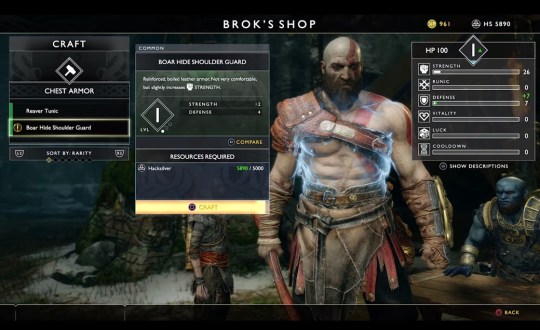#to at least capture their likeness enough that i can simplify them and do silly lil doodles of them
Explore tagged Tumblr posts
Text

watching this show is so hard when there's so many pretty shots of pretty dudes with pretty lights on them and pretty colours everywhere.........
#did a jim on this ep too but i don't like it at all </333#i need to draw them more!!!!! i wanna draw them a shit ton i wanna get good at drawing them#to at least capture their likeness enough that i can simplify them and do silly lil doodles of them#tomtoms_art#star trek#star trek fanart#star trek the original series#star trek the original series fanart#star trek spock#star trek spock fanart#st tos#st tos fanart#st tos spock#st tos spock fanart
46 notes
·
View notes
Text
FNaF World: Sister Location and Pizzeria Simulator finished!
Hey folks! I've had more characters in the works for a while now, and I've finally almost finished this row! Are you excited? I know I am! Let's get into it!
First, I elected to finish off the Sister Location animatronics, with the rambunctious scamps themselves...
The Bidybabs!




With all the wound-up energy of a pair of british schoolchildren, the Bidybabs are a welcome addition to the cast! These were a fun set of characters to make, and like last time, gave me a lot more practice animating multiple characters in one! In terms of animation, I endeavored to express the energy of a couple of silly kids roughhousing. This hurt animation features some walking, and while it is unusual, it was ultimately necessary for encapsulating the wobbliness of their stack. Like with the Minireenas, it was a tough decision whether or not to do an individual or a duo, but I knew it was going to be necessary for them to be a group in order to keep them distinct from the next character...
Electrobab!




This kid scares me. Someone find this kid a hobby. Preferably something non-conductive.
The neglected weird kid of the Sister Location Custom Night group, this overcharged infant is packed full of likely lethal electrical powers can put any pitiable poltergeist in this franchise to shame! Jumpscares? Hallucinations? Possession? That all pales in comparison to Electrobab's capacity for emitting immensely powerful controlled shocks! I guess it learned from how it was raised.
Now that we've finished off Sister Location's cast of oddballs, let's finish off the strange folks from Pizzeria Simulator! First up we have our unforgettable bowl of overcooked ramen...
Molten Freddy!




This noodly feller was quite a bit of fun to make. Rigging up all the wires was tough, but in the end I achieved exactly effect I was going for. And it's just plain fun to watch him go! For the main body, I was going to use a set of rigid bones to make it bend, but after some testing it didn't look very good. Too robotic, not silly enough. That was when I remembered the stretchy bone I'd used for Phone Guy's cord. I gave it a shot, and the resulting stretchy bouncy effect was just what he needed! The hurt animation is a little brutal-looking, but he'll probably be fine. These guys have been murdalized and melted down how many times now? They're troupers, they'll go through a thousand new marketable forms before they're finished!
Since everybody loved one bear so much, how about another Heeeere's...
Lefty!




The surprise puppet-trap himself! Lefty was a fairly simple one, as the character is largely a recolor of Rockstar Freddy. Nonetheless, I tried to give Lefty a distinct personality from Rockstar Freddy as best as I could. The animation direction for this character was very unnatural, disjointed, and jerky; like a dancing beartrap (or puppet-trap, hee-hee). In his hurt animation you can see the Puppet's eyes inside his detached jaw, dizzy from being spun around and stretched. I would be too.
I do not envy Charlie's situation, being stuck inside a robotic bear and forced to burn to death. Oh well, at least the darkest pit of hell is ready to swallow her greatest enemy whole— oh, he got out again? Why do we keep using fire?
Oh well, guess we've got...
Scraptrap!




Designing a cutesy version of this character is a tall, tall order. I did my best, and I think in the end it captures his design pretty well while remaining pretty simplified all-around. It's a little more stylized than I usually like to do, but I can't tell if that's on my part or if that was inherent to the character. He's not the most stylistically consistent of Scott's designs, even in his original FFPS appearance. In terms of animation direction, I decided to animate him like a bit of a cartoon villain. Exaggerated hunched posture, unbridled aggression when attacking, and shocked frustration upon being damaged. Fun animation tidbit, the skull inside his helmet moves its jaw with his. Look closely at his mouth and you can see it. Pretty spooky! Here's a behind the scenes look at his skull. Yikes!
That about does it for the scrap animatronics, though I've got another cooking up for next time, just you wait and see...
To finish us off, here's a remake of my Yenndo hurt animation! I decided the last was too generic!

Thanks for tuning in as always! I hope to bring you some more neat stuff soon! I'll catch you on the flipside!
#bidybab#electrobab#molten freddy#lefty#scraptrap#yenndo#fnaf world#five nights at freddys#fnaf pizzeria simulator#sister location#fnaf sl#fnaf sister location#ffps#art#mellowtrashtrash#3d artwork#blender#3d animation#fanart#animated#animated gif#looping gif#animation
58 notes
·
View notes
Text
Doctrine made simple (I hope:)
HI! :)
This will be a quick overview of what I believe to be the basics of Christianity. I say this while also acknowledging that there are many ways to view one’s path with Christ. I am not saying that this is the only way to view it, but if someone wants to know what my personal (Praphit Productions) views on the matter are, or if you'd like a clear start for your own beginning with Christ, here it will be, plainly laid-out for you:
Two parts! #1 Belief and #2 carrying it out.
We'll start with "Belief" as if it were a book, and roll with chapter one (of 4) - "God, baby!"
Father, Son, and the Holy Ghost.
Hebrews 11:6 -
"And without faith it is impossible to please God, because anyone who comes to him must believe that he exists and that he rewards those who earnestly seek him."
Everything starts with faith. No matter what it is that you believe, it starts there. Obviously, when dealing with religion, we're talking about the very foundation of your motivation for life.
God --- Belief -
1) The Trinity - there are plenty of scriptures referencing the Godhead. Jesus refers to "The Father" as well as "The Spirit" within the gospels. Understand that we can not understand this, we can only continue to gain understanding on this subject. I'm simplifying (perhaps even oversimplifying) in order to keep this as quick as possible, plus it's better for you to study for yourself.
FATHER = The Plan SON = the words of that plan SPIRIT = the power behind that plan
Yep, definitely oversimplifying:) As you walk with the Lord, you will understand what I’m talking about.
All three are "God" - the holy one, the creator of all, the ruler of all, the alpha, the omega, love itself, our joy, our wisdom, our peace, healing, Savior, King, righteousness, wrath, judgment, forgiveness, grace, mercy, the almighty, I could go on and on and on throughout eternity, if what's swells up within me as I think of God could be expressed in words.
They are one and yet different, as we are to be ("made in His image").
This life thing is God's house. The earth, the universe, the multiverse (if you'd like to take it there:) EVERYTHING! All people, the laws of life, the fabric of life, EVERYTHING IS BY HIM, THROUGH HIM, AND FOR HIM.
He shouldn't even really be seen as "he" as we think of a "he". Doing so actually tarnishes the "He". God is not a gender. God is not a race. God is light.
In the story of EVERYTHING, God is the main character. This is all about Him; I can't stress that enough:)
Sin --- Belief -
2) Sin is damning.
I can remember talking with an atheist about sin. He told me that he does not believe in sin. I retorted with "What do you call all of this nonsense we see in the news everyday?" He replied "That's just people being evil." I said "Yeah, sin." We all know what sin is, no matter how we choose to say it. Sin is not only "evil" actions, but on a spiritual level, it's like a prison. For example, lying will always lead to more lying.
Sin can also be psychological, and lead to destructive, generational patterns. Sin is erring from God's purpose for our lives. If you turn to Genesis, in the bible (Adam & Eve), you can read all about sin and the effects thereof, and you can see how it damages our relationships. You can see how it'll have us hiding from God, ourselves, and each other. You can see the curse that it brings. Call it what you will, but sin is a virus that we're all susceptible to. It's all over the place, and it's sticky, smelly, and nasty.
Blood --- Belief -
3) What does the blood of Jesus mean for us?
Before I can answer this question, I must remind you that the belief in God and in the concept of sin are foundational. This is literally God's world, and to sin is when we act contrary to His plan and the rules of His world - with this in mind, let us look at that famous scripture John 3:16
"For God so loved the world that he gave his one and only Son, that whoever believes in him shall not perish but have eternal life."
Let's break down this statement:
1) “God” - Think of what we covered in the section about God.
2) 'loved the world' - Don't think of 'love' as you have experienced it, because that's probably screwed up. I don't say that as anything against you; it's screwed up for most of us. Few people (or no one) live (and have always lived) in a community, where ALL of the people are all in on you; exhibiting the natures of this scripture - 1 Corinthians 13:4-8
"4 Love is patient, love is kind. It does not envy, it does not boast, it is not proud. 5 It does not dishonor others, it is not self-seeking, it is not easily angered, it keeps no record of wrongs. 6 Love does not delight in evil but rejoices with the truth. 7 It always protects, always trusts, always hopes, always perseveres. 8 Love never fails."
Even our view of what we'd like love to be is flawed, because we haven't always been covered in a powerful, nurturing, and guiding environment. I'm not even talking about some fanciful, never-ending fountain of good vibes either. Our God, our Father, our Friend is also our King. I used the word "guiding" above. This word comes with it discipline and sometimes, unpleasantness.
I've given you enough here on God's love to help you begin to see the surface of His love. If I try to frame it for you more than that at this time, it would be a disservice.
Now take the word "world" from that scripture and think of us - ALL OF US, no matter our backgrounds or where we come from.
3) 'He gave His one and only Son'
This is sacrifice (what true love is) from God the Father and God the Son. It is spoken this way in scripture for the benefit of our understanding. We can grasp sacrificing for those we love. The "only" is also important for us to capture the tone of this event on the cross.
4) Now the Blood - "that whoever believes in Him shall not perish, but have eternal life."
We choose to believe in what Jesus was/is about or not. The prerequisite of following God is His sacrifice, which is His blood poured out for us at the cross. This being God's world, He calls for offerings in repentance of sin (which included the blood of animals for quite some time). This is also a glimpse into how God views life in general (blood being a God-given life force). The blood of approved animals was good enough only to delay the wrath/effects of sin. There needed to be a pure offering - not from animals or even humans, but from God Himself. There's a lot to believe there, which is why you must first believe in God and sin.
But, I think it is logical to believe in God. Even if you go with the Big Bang theory, there are still unanswered questions as to where everything came from and why. There are still things that scientists argue over and still have questions over. We'll acknowledge that there are wonders of the world (or universes) that we haven't even began to look into. Science itself is based off of what can be proven. If you are to live only by what is proven, then scientifically speaking, you must accept that there are things not yet proven. Therefore, God should at least be considered a possibility. Which is more silly - to believe in God or to believe that everything just kinda formed on its own with no real reason why?
All of the human elements to how the bible was formed, how we interpret it, and a whole lot of things going on with the Church are very much flawed - agreed. But, if we separate all of that mess from the notion of God, it's quite believable, I think.
And as for "sin", we may use different names for it, but the evil going on in this world is very real.
This step is simply believing that God would make a way for us to follow Him. Or at least... this is half of the step to following Him - believing in His ways and what Jesus did on the cross for us. The second half is what we'll cover next - The Resurrection.
4) Resurrection --- Belief -
Some may say that believing a person can be raised from the dead is crazy. Again, without taking into consideration of the beliefs above, I'd understand them saying that. But, if we're already believing in the powerful creator who fuels life as we know it, then all of the rules of logic change.
Jesus' resurrection is a banner of victory - against our sin (that put Him in the grave), against the curses of sin (which includes physical death), and against Satan (who if you read through the scriptures, has been manipulating things behind the scenes). No, the devil never makes you do anything, but he's certainly cheering you on towards all of the wrong directions.
The resurrection is the second half of following Christ, because this victory that I'm speaking of is the new life for the believer.
A life with hope to leave your past (and the effects thereof). A life of hope to live with power (by the Holy Spirit's guidance) over sin, curse, and the devil. A life with a relationship with God, and an eventual home with Him for eternity.
I know, that's all very spiritual, so allow me to explain in broader terms (stay with me:)
We believe that God is the pure form of things like love, joy, peace, wisdom, etc. A belief to walk in those traits/ideals is enough to lead many out of their own darkness. Many people feel a sense of condemnation/shame/insecurity in their place in life. A belief in this new life with God can lead one away from the effects from that type of negativity (and the cycle of destruction that it can bring) and lead to transformation into those pure qualities. Like I said earlier, people are flawed, so churches can use this in all kinds of cultish ways, but that doesn't make what I'm saying any less pure. I'll get into how to avoid those cultish dangers later.
The cross/blood offers forgiveness and redemption and a power to look ahead, and the resurrection/our belief and new life with God offers power. A power of all of those pure Godly qualities being poured over your life, and hopefully into the lives of those that you encounter.
But, it's all a matter of belief (going back to John 3:16 - "those who believe in Him"). Believing in the ways/ministry of Christ, believing in His sacrifice at the cross (and its effects), and believing that He rose again, ascended into Heaven (not being covered in this post - you'll have to do some reading:), and that by His victory we have access to a relationship with Him (through the Holy Spirit) - a life of power, love, and hope.
The simplest way I can put the Holy Spirit's involvement is that He's our connection. He's like our WiFi to the goodness of God.
I know all of this is a lot. I'll speak in more practical terms in the next part, but this is all foundational. Think of it like that movie "The Matrix". You have a choice to believe and go as far down the rabbit hole as you'd like, or the choice to ignore everything I'm saying, and continue on with your life as usual.
Now, onto some practical principles to end this post - this stuff is also crucial for a productive Christian walk... and so that the Christian doesn't become a bigot or flat out weirdo:)
5 Keys to church action (”:carrying it out”)
1 - WORD
Jesus is The Word of God. If you want to hang out with Jesus, just hang out with the Bible. I think that the problem that Christians run into is relying solely on knowledge of God; and honestly, we don't believe that we need too much of that either. Walking with God is very much like getting to know any of person. Yes, you require knowledge to know them, but doing life with them to gain an understanding of them is crucial. There are those who have been married for decades, and will still tell others that they're still trying to get to know their spouse. Imagine trying to get to know God. But, there are two extremes (and most are somewhere in-between):
Those who believe knowledge alone is enough, and those who only rely on a little bit of knowledge to make their judgment. Again, let's go back to getting to know a person. I could read about many people, but that wouldn’t mean that I know them. The information that I read is limited, and there's a lot of interpretation to merely hope that you'd get right. And if you're not even willing to go the mile for the knowledge, then there's really no hope that you'll ever know the person, right??
A lot of Christians that I meet are not truly hungry for knowledge, wisdom, and understanding of God. They'll be content with having the Sunday preacher feed them a little bit, once a week; this makes another point, that The Word is our food. How healthy do you think you'd be if you only ate once a week??
Lastly, as if with any type of book club (church is more than a book club, but in this context it works), everyone gets a chance to add their two cents. Everyone gets to participate in the conversation of understanding what they've all been reading.
Where a lot of churches mess up, is not allowing certain topics to come up, not allowing certain stances to be challenged or at least disagreed with, and not allowing for different perspectives.
When churches shutdown conversation (or limit it), then it can easily become a cult; it can easily become a place of discrimination. The Church can and should know where it stands on certain issues, but disagreements and different perspectives are paramount for our development as a whole. Talking things out is what human beings do in communities. Shutting down and limiting conversation is unnatural; that's how you end up with Christians who feel like robots.
Now, if someone is saying something totally crazy or harmful, then yes, of course, that gets shut down. People also need a sense of authority. But, it has to be an authority who cares for the people, and the people need to feel as though they may freely express themselves.
Three things:
a) We are all called to be students of The Word.
b) Daily meals of the Word will keep us healthy, as Christians.
c) Creating a culture of open, safe, non-judgmental conversation in a church should be seen as foundational.
2 - WORSHIP
When I use the word "worship", I do not mean simply singing songs together or the latest gospel album that was just released. Music is obviously part of worship, but the true meaning of worship is that we are lifting up every aspect of our lives to Christ. It all comes down to what our motivations are as individuals and definitely as a congregation.
You can usually get a sense of a church's motivation by watching what's happening on the stage, on Sunday mornings.
There's a whole lot of false purity going on, on the stage. Sometimes, people are motivated by pride, or greed, or insecurity, or power, etc. If incorrect motives of worship are in the leadership, then those same motives will creep into the congregation as well.
The leadership should all being living lives that lift up Christ (leaving room for grace, of course). The leadership should be producing a congregation that lifts up Christ. And the time of worship/word (even in the events and small groups through the week) should be all about lifting up Christ. Remember what I said about God - it's all about Him. He's really the only One who should be elevated on that stage.
Now, there's a dangerous flip side to what I am saying. What a life of worship looks like can become a mold in the congregation. This mold can be used for self-righteousness, condemnation towards others, and insecurity for others. This mold can be used to manipulate. But, again, what's the motivation in the church. The motivation shouldn't be to create a place that makes any one people group feel comfortable. The motivation shouldn't be to get everyone acting and thinking exactly the same (not in this context - in this context that's a cult). God created all of us differently, and these differences should be celebrated and honored. Within worship there is love. There's love for God, love for what He has called us to do, love for life, and love for each other. If any of that love is lacking, then I question if there's any pure worship going on.
3 - Evangelism -
Wow, that's an old-timey word, that could not be more Christianese. What I, personally mean by that word is broadcasting the goodness of God; this can be done in a variety of ways (here are only some):
a) faithfully performing the job/career that you believe God has called you to b) preaching the Word c) raising a family in the Word and in the way you believe God has called you to d) enduring trials of life in a Godly manner e) discipleship (which I'll talk about next) f) encouraging other believers in faith g) serving the needs of the community h) praying for others i) sharing your stories of faith with others
and so many more.
It used to be believed by many, that you must beat people over the head with the bible in order to be considered to be one who evangelizes, but to keep it simple, it's just sharing with others what God has blessed you with.
4 - Discipleship -
Here is another churchy word (and we've got one more after this to cover). This word simply means “to train”. Back in the day, it was a training that came along with living life with a teacher for a period of time. We are used to going to a scheduled class and then going back to our lives, where we'll study hard or not (probably "not" right??). But, discipleship, back then, was more like consuming a certain subject. In the religious realm, it was seeing the teachings lived-out firsthand. The 12 disciples (and other students of Jesus) got to follow Jesus around and experience not only His teachings, but His life for 3 years.
We obviously live in too busy of times to disciple people like that now. Discipleship, today, looks more like a community of people pouring out their life experiences into one another. At any church, you've got people who have great experience in all kinds of helpful areas - from the bible to stuff around the house to mechanics to economics to science to arts - there is so much that we can learn from one another.
Being a Christian is not simply staying in your room praying, reading your bible, and singing songs. Being a Christian is about living the life that God has designed us to live. I know that statement can rub people the wrong way, but that's because we are so used to corruption. Our default is cynicism. We can't fathom someone completely having our best interest in mind. We can't comprehend going in, fully in servitude to anyone, because we know people in general to be jerks. We assume that following God means that we have to give up our dreams and desires (which is not true btw) So, we're taking all of that skepticism, fear, insecurity, and resentment, and pointing them in the direction of God. It's ok to question the motives of people. It's ok to work towards trust when it comes towards people. And it's also very human to work our way towards trust in God.
The difference between building up trust in people and trust in God is that people are always going to let us down; even people who love us dearly will let us down. God will never let us down. God has literally designed us, so following God will never be a let down; difficult for sure, but not a let down in certainty.
For example, I am a creative person. I believe God wants me using my creative ability in every day life to serve and nurture people. I do this and I feel fulfilled. It's not a burden for me to be creative. Now, to be clear, my overall path with God will definitely lead me down some areas of discomfort and trials and tragedy. But, those things come mainly from living in this screwed up world we have, and not due to doing the things God has designed me to do.
Discipleship is being open to receive training as well as offer it to those in need. We all have areas in which we're strong and areas in which we are weak. The way that discipleship is supposed to work is that we all feed each other, and so all are fed.
5 - Fellowship -
All that this fancy word means is to build community. I put emphasis on the word "build", because as you should know, relationships take work. Think of the amount of work, energy, and even money that go into keeping your family together, healthy (in all ways), and focused. How much more effort do you think it should take to build and keep a whole community; that's what fellowship means - that effort put in.
You won't see any thoughts on typical church arguments written about in this post:
homosexuality, abortion, sex before marriage, drugs, music, money, etc.
I view most of these as secondary to one's walk with Christ and with each other. A lot of these issues, and others come down to how one interprets scripture. We argue over context, intent, translations, and Lord knows what else, and all the while people (and their needs) in congregations and communities are going unnoticed. True worship, in the midst of our nonsense does not happen. People aren't properly fed the word. People aren't properly trained in Christ. Religion can become a lot like politics, where we fight each other while a larger enemy is destroying us all. Like I said earlier, a healthy church is one that is open to talking about all of the important issues, viewing all different perspectives, and seeking to grow in understanding.
Regardless on how all of that shakes out (if it's happening at all), our main mission as a church is to love. We love God, which is to consume His word, obey as best we can (in grace of course), and continue to grow in the knowledge of Him. And to love one another is to truly pursue to serve, honor and get to know one another; that we would put the effort in to building and sustaining our communities.
#gospel#john praphit#praphitproductions.com#Church#Jesus#doctrine#discipleship#religion#evangelism#bible#fellowship#community#faith#understanding#praphit#inspiration#learning
2 notes
·
View notes
Text
Words Run Amok
[Note: This is the first in a bit of branching out for this blog into something I had always intended to do with it; namely, interspersing various musings from my passion for linguistics. As you'll see, this interest often intersects in various ways with my other more esoteric interests.]
Language/Culture X has Y words for Z
Did you know the Eskimos "have 50 different words for snow"? You've no doubt heard it in any case (with the number, in a real life game of "telephone" gone wild, slowly increasing over time). I've never been clear on why this seems to be most well-known the example of vocabulary supposedly run amok. Of course, it's entirely incorrect on at least two levels.
To begin with, Eskimo is not only an inaccurate term but is now considered to be a bit on the pejorative side. Nor is it the case that generally more accurate terms, like Inuit and Yupik, should be substituted in an over-simplified search-and- replace; these are just the two best known groups of people who have inhabited the far north long enough to be considered native to the region. But this is not the main point I'm getting to.
If your culture places a particular value on highly nuanced variations of a common thing, your language will reflect this. Setting aside the tendency of Inuit and related languages to construct compound words whose length would bewilder even a German speaker, the resulting compounds can still generally be treated as variations on the root word (each component is itself a word or prefix of some kind, and understanding of the meaning of the whole can be gained from breaking it into and analyzing these components).
We do the same type of compounding in English, but it's just that the way our language combines different words and particles to create more complex words leaves them separate (thus forming phrases instead of new standalone words). Thus we can have fluffy snow, slushy snow, snow flurries, etc. as different "names" for snow even though we parse them as just the noun snow with clarifying adjectives. If English created compound words through lengthening, we could just as easily (given different turns of the quirks of language evolution), ended up with fluffsnow, slushysnow, flursnow, frozenskystuff, etc.

Now imagine a non-English speaker from a tropical island encountering this strange weather phenomenon that they are barely familiar with, and who doesn't know that snow can come in different 'kinds' like our manipulated examples -- they'd likely just claim that English has (at least) four words for snow.
[As an aside, I also think there is a subtle racial component to the "Eskimos have 50 words for snow" canard. Similarly to how much of 'ancient aliens' speculation amounts to an implication of "these 'primitive' brown-skinned people couldn't possibly have figured this out on their own!", the snow vocabulary issue carries an implication of "don't these silly people know they could just reuse a word and add adjectives like we do in 'sensible' English?"]
English (especially American English) has more words than I can count for car (or more generally, four-wheeled street vehicle). We have sedans, coupés, SUVs, RVs, convertibles, hatchbacks, sportscars, trucks, buses, compacts, limousines, clunkers, beetles, minivans, Fords, Porsches, etc. etc. etc. If you speak a language other than English, and have a frame of reference that either doesn't distinguish between or have an awareness of these varieties, you'd likely just translate them all as the lowest common denominator of 'car', 'vehicle', etc. After all, they each are types of passenger vehicles and if your primary motivation is just to get from point A to point B without having to walk, that description is sufficient enough. Languages use different names for distinctions their host cultures find meaningful, even when there is still a general category that captures the meaning sufficiently for many purposes; those distinctions are easily lost when a culture that doesn't place the same emphasis or awareness on those categories translates them into their own language.
[You could do the same example with computers (Apple, PC, tablet, mainframe, etc.), phones (mobile, landline, flip phone, iPhone, phablet, etc.), trees (oak, ash, birch, elm, yew, pine, cedar, etc.) or with virtually any common object where sometimes you need to make a specific enough distinction between its varieties that a different word, compound or not, is appropriate].
Translation Loss in Contextualizing Iceland Magic
This same translation problem, where essential meaning is lost if the translation simplifies into a 'lowest common denominator' word, pops up in two specific places in the study (and revitalization) of pre-Christian religion. My examples will draw primarily from northern Germanic studies, as that's where my familiarity lies.
In Old Icelandic, there are many different terms that are often homogenized in translation to words like 'magic' and 'witchcraft'. Non-magic using cultures tend to collapse all such terms into more broad and simplified ones, in part because they don't grok all the distinctions and so the terms are really just synonyms for each other (rather than retaining the importance they originally had that necessitated breaking the concepts into different words).
One operation is not the equivalent of another, and thus essential meaning is lost when replacing all words in the same category with a more generic gloss. Some Old Icelandic terms that are usually translated as merely 'magic' or 'witchcraft' include:
galdur - from the verb gala (the 'singing' of ravens, an animal closely connected with Óðinn). This is vocal/verbal magic, often involving runes. This is the most common specific type of magical practice mentioned in the Eddas and the sagas.
seidh - a form of ecstatic trance magic; a full discussion of its practice and etymology is beyond scope of this post
gandur - use of magical wand/staff (Tolkien borrowed from the Eddic poem Völuspá ("Prophecy of the Seeress") the dwarf name Gandalf ("wand elf") for his famous wizard)
fjölkynngi - means something like 'deeply skilled magic'. There's not much information available on the particulars of this form in existing sources of the period.
fornekja - The first part, forn, means "old" (e.g., as in Forni, "the old man/one", a byname of Óðinn). This is magic rooted in knowledge of the deep past (you must dig deeply into the roots of things in order to be fully transformed by them). The term is often translated into the generic (and thus mostly meaningless) gloss of 'witchcraft'.
Ignoring Nuance in Concepts of the Soul
The concept of the soul is greatly oversimplified in the Judeo-Christian-derived version we typically associate with it today.
The soulcraft of the Germanic peoples reveals far greater nuance, and a much better map for working with the concept. The Old Icelandic ideas and descriptions here are adapted from Edred Thorsson's The Nine Doors of Midgard, but are well documented especially in the Icelandic forms used here. (See also his master's thesis, published as Sigurdr: The Rites of Transformation, under his given name of Dr. Stephen E. Flowers).
There are at least eight parts of the body/soul complex in the old Icelandic phenomenology. These include:
hamr - the force that gives shape to objects, mutated by the individual human will
önd - the animating principle of the entire complex ("breath")
hugr and minni - the cognitive and reflective faculties (from the same roots as Óðinn's ravens Huginn and Muninn)
fylgja - the faculty for storing/transmitting individuality in a mysterious pattern throughout one's life (and beyond). Often visualized as a contra-sexual being, or an animal form
hamingja - usually translated as a person's innate 'luck', or the power to cause changes within the world
(Another meaningful breakdown, usually collapsed to the oversimplified concept of 'soul', is that of the ancient Egyptians: khat (body emanation), ren (name emanation), khabit (shadow emanation), ab (heart emanation), ba (core emanation), ka (transmigration emanation), sekhem (neter emanation), akh (star emanation). See Dr. Michael Aquino's Mindstar for a fuller explanation).
Languages are nearly infinitely flexible things. The way that vocabulary arises, especially for commonly used or encountered objects, is driven both by the rules of the language for creating new words that 'fit' within its phonology, and also by the distinctions that are considered meaningful. We shouldn't be any more surprised by the ways different languages collapse and combine elements to form new concepts than we should continue to be by the fascinating multiplicity of language itself.
13 notes
·
View notes
Text
God of War - Review (PS4)

Developed by Sony Interactive Entertainment / Santa Monica Studios
God of War is not only a reboot of the series which has existed since 2005, God of War is a complete re-imagining of the series; not only changing the core gameplay, but its entire genre. Gone is the power fantasy of slashing our way through Greek Mythology. Now, we have an incredible adventure through Norse Mythology, but far more nuanced, meticulous, and grounded. This new God of War is more of a cross between Dark Souls and a Zelda game, more so than hack ‘n slash titles the series originally was inspired by. God of War is a technical masterpiece and also happens to be a great game overall. With this complete change of pace, it may not capture all fan’s attention, but as it stands, God of War is one of the best games of the current generation so far.
The concept itself it one of the coolest ideas for a story I’ve ever heard in fiction: the Kratos (Christopher Judge) the Greek God of War is traveling through Norse Mythology on a quest to spread his dead wife’s ashes from the highest peak of all the Nine Realms. I have never heard before of two mythologies crossing over so deeply, and the authentic execution on display is even more impressive. Much like how Red Dead Redemption got me interested in the Western genre, God of War has gotten me interested in Norse Mythology. This is one of the biggest things I can thank this game for, as I’ve already bought reference books and done online research about this mythos, completely captivated by its history.

Plot-wise, God of War is a bit weaker. While the overarching concept is brilliant, the actual beat for beat story is a bit less inspired. Kratos is traveling through the Nine Realms with his son, Atreus (Sunny Suljic). The drama between them is fantastic and subtle. The graphical detail, as well as writing, and motion capture have made their duo one of the best in gaming entirely. However, since their quest is so simple, it means this 25+ hour RPG has to keep finding excuses for the heroes to not reach their goal yet. Small obstacles keep getting in the way that force us to explore more of the realms, acquiring mystic and rare items from one place, combine it with others, and then bring it back to where it goes. It’s a noble quest to uphold his wife’s dying wish, but the protagonists (and the gamer) certainly go through a lot of trouble and danger for a woman the gamer has never met or seen (yet Kratos and Atreus’ affection for her is quite clear).
Gameplay is methodical, using heavy and quick attacks with our sole weapon: the Leviathan Axe. This ice-based weapon is essetially our only main weapon throughout the game, but it has enough versatility and skill trees to unlock to make it a worthy weapon. Atreus is never controlled directly, but he can fire special arrows wherever we want, which, by extension, still makes him part of the player, especially in combat. Puzzles are equally dotted throughout every hour of the game as combat is. The new fighting system is a bit stiff and difficult to get used to at first, but the learning curve ends quickly. We collect XP to level up our abilities, and collect items and crafting components to upgrade armor and weapons.

This leads me to my only other nit-pick about the game, which is its overcomplicated menu system and abundance of confusing items. Spank me silly if I couldn’t remember the difference between runes, talismans, and enchantments for at least two thirds of the game. Every single items and attachment can be upgraded, but it’s hard to keep track of knowing if Kratos and Atreus are as truly optimized as possible with so many items and equipment. I’d rather it had been slightly simplified to keep the focus on the gameplay and story rather than scratching my head constantly deciding what is okay to sell and what should be kept for later. Either way, much like an action game, the ability to defeat greater foes more so comes from your skill as the player getting better at the combat, rather than relying on stats and special abilities (but they certainly do help).
I love how this game feels so new, yet so traditional. Things like locked doors and chests have to be passed up earlier in the game, and found again once we have the key or ability to open it. To inspire exploring old areas again, the developers creatively came up with the idea that the Lake of Nine (the hub area) constantly reveals more land because the World Serpent shifts his weight or lifts out of the lake sometimes, forcing the water to lower due to his displacement. We explore this hub lake via canoe and get to know Midgar (Earth) very well. The other Nine Realms aren’t quite as inspired, and tend to feel very similar to each other. Sure, one is “lava” themed and another may be “ice” themed, and enemy types certainly match their realm, but I thought there would be more variety in the lands themselves. I also thought I’d come across more foes and friends of Norse Mythology than we did, although there are many authentic scenes and interactions to keep a history buff surprised and entertained.

Aside from graphical detail, the game is also technically impressive purely in its processing performance. At no time (other than a death or firing up the game) do we see a loading screen; every cut-scene flows right into gameplay, and gameplay flows right into cut-scenes. Even going through doors from one massive area to another doesn’t force the game to enter a loading screen. This helps make the game immersive to never take our eyes off the protagonists, like an invisible third member of the party. The game uses creative techniques to disguise loading times while keeping you present with what the heroes are doing or saying.
I also love how Santa Monica Studios clearly put all their effort into the single-player mode, and nothing else. Never did I find something blocked by obvious future DLC or microtransactions. This is a very big, pure, dense, single-player title that is a love letter to gamers. The developers (and publisher) did not sell out, which is an enormous relief to see from big gaming companies in 2018. Although a few of the realms were locked during the game, I suspect those might make an appearance in future DLC, I’d be happy to purchase and play those because it doesn’t feel cynical and greedy on the game creator’s part. God of War isn’t completely perfect as a game, beings none are, but its many technical, artistic, and gameplay achievements should be universally praised. We want more games like this, so vote with your wallet, and pick up this product. This game has incredible depth and value, and should make all fans of action, adventure, and RPGs extremely satisfied.
9/10
#godofwar#santamonicastudios#rpg#gaming#ps4#kratos#atreus#norsemythology#loki#thor#odin#tyr#frigg#baldur
6 notes
·
View notes
Text
New Post has been published on Harold Gross: The 5a.m. Critic
New Post has been published on http://literaryends.com/hgblog/a-series-of-series/
A series of series...
What is the collective noun for a bunch of series? A fiction? A stream? A numbing? A time-suck? A profit? There must be one. In any event, there has been a number of series I’ve plowed through, but haven’t felt they needed a separate write-up, so I’ve collected them here. It is a broad range of subjects and providers in no particular order.
Warrior Nun – An imperfect, but engaging fantasy series that got me to check it out through its title alone. But, as it turns out, they hit the jackpot with some of their casting (though not all). Alba Baptista drives the series, coming across, in a positive way, as a young Ellen Page and very credible American. She’s joined by a few solid, and relatively unknown, supporting actors like Kristina Tonteri-Young, Toya Turner, and Olivia Delcán. The plotting is often weak or ill-researched, but the effects and some of the battles are pretty well executed. And the dialogue is often amusing. I’m actually looking forward to seeing what comes next…even if I curse them for a massive and cheap cliff-hanger ending to the season.
Perry Mason – overlaps heavily (and unfavorably) with City of Angels. It covers the same period of time and with similar nods, but it simply doesn’t manage to capture the era in the same scope. Oh, and yeah, it is only Perry Mason in title… this show just didn’t know what it wanted or needed to be. Couldn’t stick with it despite the cast and my love of murder mysteries.
Crossing Swords – South Park meets Lego. Almost enough said, but I was surprised to see the silly antics and crazy storylines actually form a seasonal arc. For all the insanity, there is a purpose…well, OK, at least a shape. I couldn’t really binge this show, but it was a fun distraction to fill in 22 minutes when needed. And the voice talent is pretty surprising.
Love, Victor – There are a number of solid moments and concepts in this series that make it a sweet and clever spin-off of Love, Simon. But, honestly, it doesn’t earn its stripes, but I’ll get to that. If you haven’t heard of this story, it explores the struggles of Michael Cinimo in the title role coming to terms with himself, similar to Simon in the source material, but with more challenges. Rachel Hilson (This is Us), George Sear (Alex Rider), and the somewhat over-the-top Anthony Turpel (The Bold and the Beautiful) fill out Cimino’s inner circle and focus.
To its credit, the show isn’t quite all rainbows and butterflies…Cinimo’s family is a bit screwed up and the world isn’t a perfect place. It’s simplified, to be sure, but it keeps it from being ridiculous. It also provides it some grist to grind on for the series length with multiple layers on the subject of relationships and love. And the easier resolutions provide hope to their target audience.
However, I do have one, not so little, issue with the story. Our hero Victor, while really capturing the confusing nature of growing up, is depicted as falling for Hilson’s character by getting to know her while really only lusting for Sear’s Benji without much sense of who he is. Realistic? To a degree, but it cheapens the inner struggle and diminishes the message that both attractions are real and equal. And it also costs them any credibility in the season one, inevitable, finale. Which was truly a shame as it could have really had a solid season with a little more effort on the writer’s part.
Killing Eve (1-3) – I never wrote up this series as, frankly, it was getting more than enough press. My thoughts were completely unnecessary. However, having recently completed the third series, I was struck by how the plot has evolved each year. I was impressed with the evolutions of Fiona Shaw (Mrs. Wilson) and the addition of Harriet Walter (Black Earth Rising) in particular. Not that the rest aren’t great and fun, Ken Bodnia (The Bridge) has some particularly wonderful moments, but I’m doing this as a drive by. The third outing is definitely a shift in presentation and tone, but I still find the story pulls me in and the disintegration and remaking of Sandra Oh’s (Last Night) Eve and Jodie Comer’s (Doctor Foster) Villanelle fascinating. I’m very curious to see what comes next and if they can sustain it; but I’m also hopeful that they’ll wrap it up soon and let it enjoy a completion. It can only be milked for so long without completely devolving or getting boring.
Upstart Crow – Such great, silly, and very clever fun. In fact, the series only improved as it went along. From one of the minds that helped birth Black Adder, comes this great social satire through the lens of Shakespeare’s life. With a solid cast and tight writing (and wonderful nods to the canon itself) this is one of the better half-hour concept comedies I’ve seen…if nothing else for the impressive scripts.
Cardinal (series 4) – This could well be the end of the series, though they’ve left a nice trapdoor to keep it going. Previous series were good and interesting, but not brilliant. With this fourth outing, the writing has suddenly gelled even as they wrap up some long arcs that began with the first episode. This is, by far, the best written and delivered tale so far. I’m hoping they get to continue with the stories and these characters, but I wouldn’t feel left hanging if this was the end.
Before We Die – Another Scandinavian police procedural, yes, but definitely with its own unique set of characters and the dark malaise that hangs over all that genre. It starts with a strong statement and quickly knots up the characters into an intriguing tangle that unspools through the series.
#adaptation#Dark Comedy#grrrls#LGBT#Mystery#Political Drama#Romance#Science Fiction#ShouldSee#Suspense#Streamed only#TV Review
0 notes